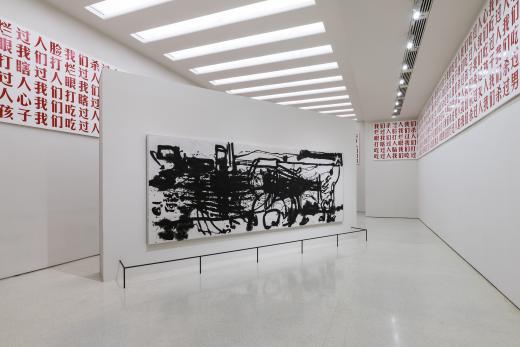CODA
GALLERY 203
Gu Dexin is the conscience of his generation. His frieze of thirty-five panels contains eleven sentences written in the font and vermilion red typical of official signage and political campaigns. The text repeats:
We have killed people we have killed men we have killed women we have killed old people we have killed children we haveeaten people we have eatenhearts we haveeaten human brains we have beaten people we have beaten people blind we have beaten open people's faces
To the Chinese eye, these sentences, scrambled but recognizable through repetition, evoke the modern writer Lu Xun's masterpiece "Diary of a Madman" (1918), in which the protagonist gradually realizes that he is surrounded by cannibals. The story was a veiled critique of a culture that valued collectivism over the individual. As the subject of Gu's sentences, an unspecified we, takes responsibility for each unthinkable act, the work implicates the viewer in the moral failings that underlie the social order. By we, Gu means all of us.

